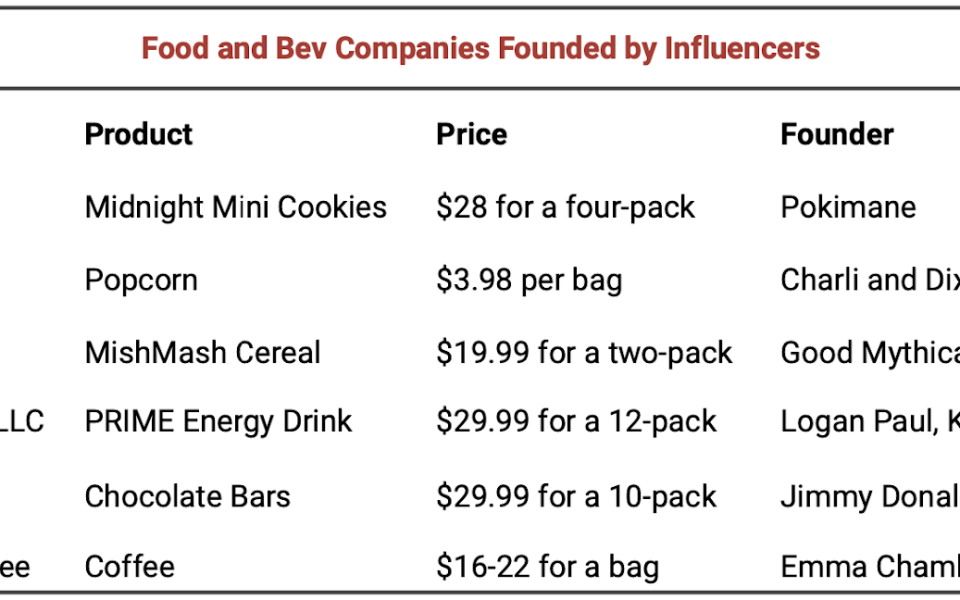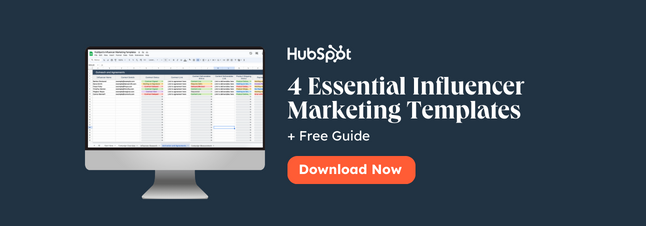Influencer-Founded Food and Beverage Brands: Are They Good Business?
I’m writing this while sipping coffee made by Emma Chamberlain’s French press. The 22-year-old YouTuber is not only Gen Z’s favorite influencer, but also a big-time entrepreneur.
Her coffee brand, launched in 2020, took off among young coffee lovers (and even tempted me, a not-so-young coffee lover).
It got me thinking: Has food and beverage become the new playground for creators and influencers?
So I looked into a few players:
Source: Company websites
Turns out they’re doing pretty well – some even minting billions.
- Prime, Logan Paul’s energy drink, is primed to exceed $1.2B in annual sales
- Feastables raked in $10m in chocolate bar sales within a few months
- Chamberlain Coffee makes ~$6m annually, and recently raised $7m
- The D’Amelio family raised $5m to foray into snacks
Why Influencers Flock to the Food and Beverage Industry
For starters, it’s lucrative. Food and beverage accounts for over 30% of the $2T consumer packaged goods industry. Plus, the entry barrier is relatively low.
And creators and influencers are well positioned to take a slice of the pie:
💰They’re already the winning formula for CPG brand marketing. These brands spend ~$40B per year in ads, a big chunk of which goes to creator partnerships.
❤️ Their content often fits well with daily refreshments like snacks and coffee, and their relatable nature inspires trust among young consumers.
📉 Loyalty for legacy brands is waning, and there’s space for influencers to get in. With a built-in brand and audience, it’s easier to gain traction for their products – especially if they play up the health angle.
They’re Not Doing It Alone
Since these entrepreneurs aren’t usually experts in the goods they sell, white-labeling is a popular way to get a product to market.
Influencers partner with third-party manufacturers and add on their own branding and marketing. This way, they quickly gain market share without high upfront investments:
- Chamberlain Coffee is powered by Bixby Roasting Coffee
- Prime energy drink is actually made by Congo Brands
- Midnight Mini Cookies are based on a refined recipe by Creation Foods
And, to add a trusted edge, food industry veterans are often chosen to helm these companies, like Feastable’s Jim Murray and Myna Snack’s Darcey Macken.
Hardly A Candyland
Not every influencer-founded refreshment can magically make it. As more products flock to the space – and with A-list celebrities in the mix – it’ll be even harder to stand out.
Plus, it’s easy for influencers to lose favor with consumers: Pokimane got into a beef with her fans over pricing for her cookies; Prime drinks are getting pulled from shelves with pending FDA probe; and Chamberlain’s latest RTD collection is being dubbed “farts in a can.” 💨
![]()



